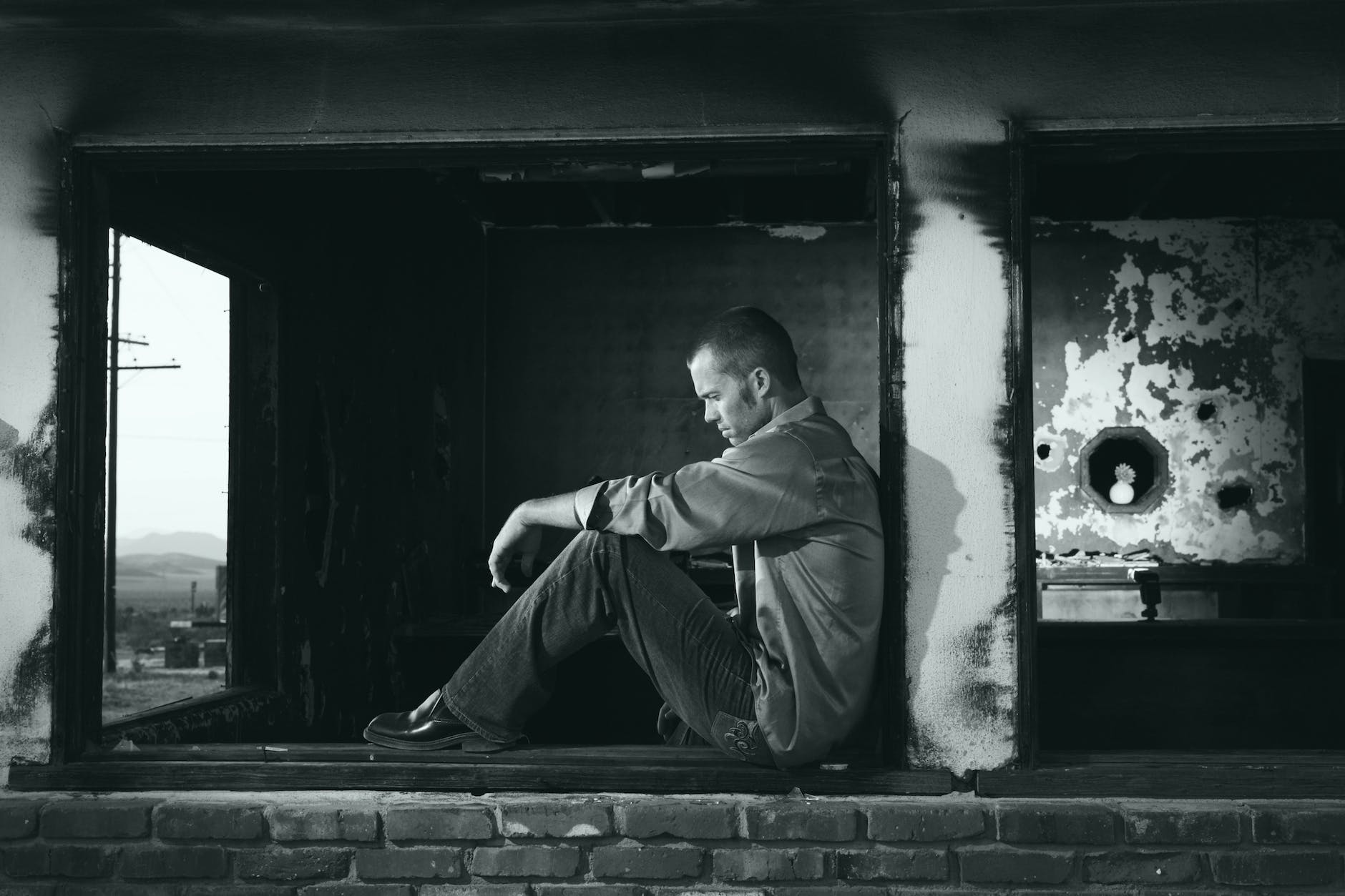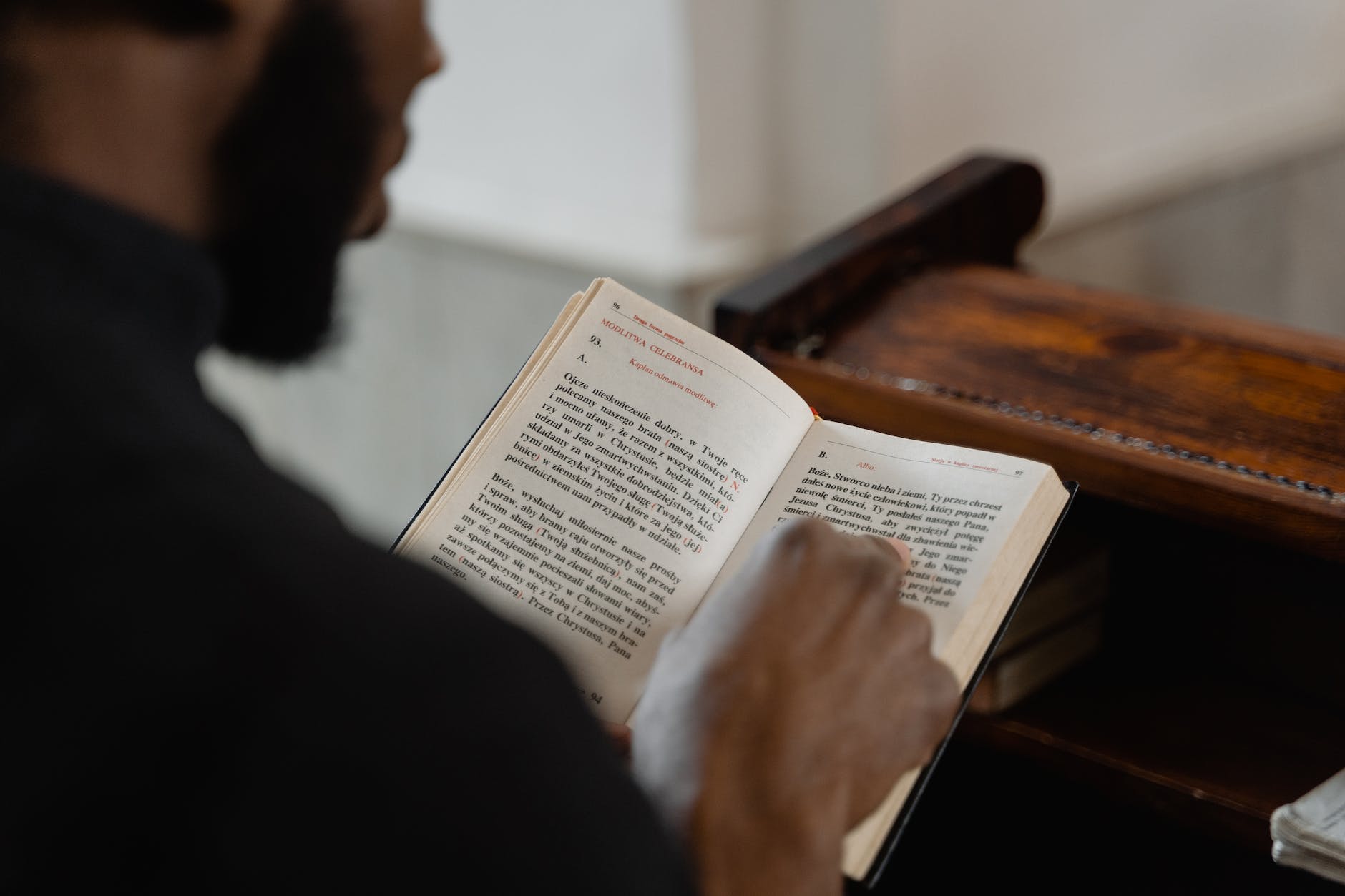Faith-Empowered Bible Verses That Can Help Support Recovery and Life Transformation
Step 4: Made a searching and fearless moral inventory of ourselves.
James 1:23-25 – Looking in the Mirror. What Kind of Person Was I?
23 For if anyone is a hearer of the word and not a doer, he is like a man who looks at his natural face in a mirror; 24 for once he has looked at himself and gone away, he has immediately forgotten what kind of person he was. 25 But one who has looked intently at the perfect law, the law of freedom, and has continued in it, not having become a forgetful hearer but an active doer, this person will be blessed in what he does.
Now that you will act on your faith, you will take that look in the mirror. We all have some idea of who we think we are, but our actions bare the facts of who we really are. A look at our past actions is a look in the mirror, but now we add a filter to look through.
This “perfect law” is the filter we will look through. We are to look at ourselves by our past actions and interactions, but through the filter of what God has said is the way we ought to live.
Though our decision was a vital and crucial step, it could have little permanent effect unless at once followed by a strenuous effort to face, and to be rid of the things in ourselves which had been blocking us.
Alcoholics Anonymous Pg 64
We are beginning a “strenuous effort” journey to face and eliminate the things “blocking us.” Blocking us from God’s power for recovery means what is in us that threatens to destroy us.
Recovery is a Journey of Strenuous Effort to Eliminate What is Blocking Us from God’s Power!
We will first look for and look at these things in Step Four; the rest of the steps will be the “be rid of” part. We are looking in the mirror in Step Four and not forgetting in the following steps, but freeing ourselves from these things.

Resentment is the “number one” offender. It destroys more alcoholics than anything else. From it stem all forms of spiritual disease, for we have been spiritually sick. When the spiritual malady is overcome, we straighten out mentally and physically. In dealing with resentments, we set them on paper.
Alcoholics Anonymous pg. 64
First, the Focus. This is entirely a spiritual recovery journey! That is why they mention that the mind and body work themselves out once the spiritual sickness is overcome. That doesn’t mean they are magically evaporated if you have other mental health issues or medical needs.
If you showed up at a Twelve Step meeting with a stab wound and did all of this that day, you will still need to go to the hospital.
It does mean that the people with this level of spiritual focus have found themselves empowered to do whatever it takes to get better. These people have been unable to get better by any other means.
Resentment is the current focus. A tough place to begin this journey of taking looking in the mirror. How this is outlined implies that it is a vivid indicator of the spiritual sickness. It is also suggested here that it is one of the parts of the sickness eating away at our lives.
I will not go through the Fourth Step outline here, as that is another article to write by itself. Here I will go over each segment of the Fourth Step. A General overview of how to start writing it can be found on page 65 of the Alcoholics Anonymous book. There are endless videos, other examples, and instructions to find online.
I also have more Fourth Step information on my Wade H. Recovery Network Site. Here is a list of Forth Step related articles Step 4 – Wade H. Recovery Net (wordpress.com).
The thing we are instructed to do here is to write everyone we feel resentment against. I have encountered all sorts of extremes to help people complete this first part of the list. The thing about making this list is a focus point from two small sentences in the Alcoholics Anonymous book that different people have had many different interpretations of.
We went back through our lives. Nothing counted but thoroughness and honesty.
Alcoholics Anonymous pg. 65
The starting point is to make a list of names or descriptions of everyone and everything you hold negative feelings against. We put down a list of names, and next to the name, the action or activity that caused this resentment. According to these small statements, this has to be a thorough and painfully honest list made from a deep search of your entire life.
I have encountered everything from: “Just list a few resentments and don’t spend too much time” on one extreme and “List every person you have ever known in a list, then add everything you have ever felt negative feelings about.” As a note, the second option was how my “sponsors” had me do this step.
Your Inventory Must Meet the Requirement of Being Thorough and Honest!
I can say without a doubt that the “don’t spend too much time” option is far from the intended idea of this step of the journey. I also feel that there is a full spectrum of possible levels of searching that would meet the criteria of thorough and honest and probably as extensive and not as time-consuming as my list was.
From halfway between those two extremes, all the way up to the intense extreme I went through, your personal “through and honest” will probably be found.
In defense of the extreme that I was put through, I found several legitimate and deep resentments I definitely would not have found if I had not made a list this extensive. By legitimate, I mean things not even remotely on my radar that, once discovered, were issues requiring skilled clinical attention.
As strongly as I can advise, I recommend having a strong sponsor and strong mentors to walk you through these steps. This is true of all of this process, but this particular step is a critical point in the journey, and the people assisting you must be sold on the thoroughness and honesty idea to be able to help you achieve it.
That will be the source of direction to help you decide what your thorough and honest should be. This list of names should be completed with all of the energy you can muster until it is so thorough and honest that there feels like there couldn’t possibly be more to add.

James 4:11-12 – Looking in a Different Way
11 Do not speak against one another, brothers and sisters. The one who speaks against a brother or sister, or judges his brother or sister, speaks against the law and judges the law; but if you judge the law, you are not a doer of the law but a judge of it. 12 There is only one Lawgiver and Judge, the One who is able to save and to destroy; but who are you, [a]judging your neighbor?
So, according to this passage, if you judge or speak against someone, it is to make a judgment against all the guidance and rules that God has put in place. These negative feelings we hold against people and things are against the way God wants things to be.
The common idea is that resentment is like drinking poison and expecting someone else to die. This resentment serves no real purpose except to show you where you are struggling. In some more obvious cases, we obsess over some person or thing with these feelings that are eating our souls, and that individual is not thinking about us at all. The punishment in our head and heart is only punishment to our own head and heart.
On top of all that, these feelings create more and more obstacles between us and the flow of our connection to God.
The next thing to do is start working on getting rid of these feelings at all costs.
We asked God to help us show them the same tolerance, pity, and patience that we would cheerfully grant a sick friend.
Alcoholics Anonymous pg. 67
Everyone is steeped in the challenges, pains, and struggles of the human experience here on Earth. Everyone is the way they are because of a series of life experiences and how they interpret them.
We are at a point in life, because of recovery, that we are looking at ourselves and our actions as a part of the illness that is our addictions. That does not excuse our egregious actions or our responsibility, but it is a why.
Maybe before we move into a realm where we expect others to see us through this “why” filter, we should also learn to see others in this way. That means that no matter how bad we feel a person has made us feel, we look at them as struggling with either things they are struggling through currently or things they worked through in the past, and we try to look for ways we can be of help to them. We look at them in the same way that a person looks at a sick person instead as a person who irritated or hurt us at some point.
Keep in mind that our own power can do none of this, but it requires God’s power.
For many of these, that is more challenging than I have made it sound here, and that is why we pray first. We keep in mind that our own power can do none of this, but it requires God’s power. We previously admitted we were powerless and accepted that God had the power. Now we make a request for that power to drive this process.
For those on the list that prove to be particularly difficult, we keep repeatedly praying until we get a change, asking God to give us this different way of looking at this person and for God to release us from anger.

James 4:1-3 – Wait, It’s Not You… It’s Me!
1What is the source of quarrels and conflicts among you? Is the source not your pleasures that wage war in your body’s parts? 2 You lust and do not have, so you commit murder. And you are envious and cannot obtain, so you fight and quarrel. You do not have because you do not ask. 3 You ask and do not receive, because you ask with the wrong motives, so that you may spend what you request on your pleasures.
Now we are to go back to this list of people and look for where we are being self-centered or have been self-centered. That self-focus is described here as the source of our quarrels and conflicts with other people. This passage describes it as our wants and our motives for wants being the center of all this.
So Far All We Have is a List of What is Wrong with Everyone Else… Now I Need to Look At Myself!
So far, what you have made as part of your recovery is a list of what is wrong with everyone else, and then pray to see each person differently. But a list of other people’s problems, in and of itself, will not change or free you.
Referring to our list again. Putting out of our minds the wrongs others had done, we resolutely looked for our own mistakes. Where had we been selfish, dishonest, self-seeking, and frightened? Though a situation had not been entirely our fault, we tried to disregard the other person entirely. Where were we to blame? The inventory was ours, not the other man’s. When we saw our faults we listed them.
Alcoholics Anonymous pg. 67
This is the change of focus point. This entire process is about your recovery, not what is wrong with everyone else, because we are not looking to fix everyone else.
Now we will look at this list of other people we listed because of what they did to us and disregard each person entirely. Not only that, but I will switch it up and look at where I was at fault in this situation.
This is where it becomes a mirror. We wrote this list by writing down the people whom we were examining through a microscope. Now we must look at ourselves in this mirror through the same microscope.
13 No one is to say when he is tempted, “I am being tempted by God,”; for God cannot be tempted by evil, and He Himself does not tempt anyone. 14 But each one is tempted when he is carried away and enticed by his own lust.
This is a deep look at self-focus, dishonesty, self-protection, and similar motives on your part. We are looking for our “own lust” in every situation. When you see them, you list them. When you do not see them, you pray to see them and try again. You keep repeating this until you add them to almost all of your resentment list. There should be very few, if any, that do not show your part in the situation.
This is another place where sponsors and mentors are key. They should push you on any that you cannot find your part in from your list, and they determine any exceptions that will not have one.
These ideas, by nature, are things that many people are highly resistant to.
I am aware that in communities of faith, there are various views on Twelve Step programs and faith and various levels of support or outright distaste for Twelve Step programs. Still, an understanding person of the faith who understands the details of the process you have undertaken is incredibly helpful.
If your sponsor happens to be on the same or similar faith journey as you, that is also helpful. There is much need for pushing due to the need for thoroughness and brutal honesty throughout the process. These ideas, by nature, are things that many people are highly resistant to and find deeply uncomfortable to experience, and a team of wise supporters is a fantastic help.




One response to “The Bible and Recovery: Divine Guidance Through Bible Verses for Finding Sobriety and Healing… (part 6: Step 4 | Resentments Inventory)”
[…] ◀️ Step 4 – Resentment Inventory 🔗 […]